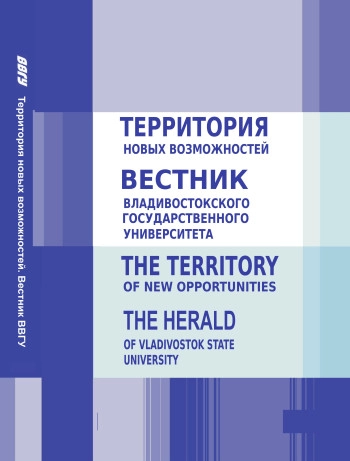employee
Vladivostok, Vladivostok, Russian Federation
This article focuses on the development of a program aimed at fostering metacognitive skills in fifth-grade students to enhance their academic achievement in mathematics. The study addresses the problem of insufficient psychological and pedagogical tools for improving the quality of mathematics education among schoolchildren. Scientific data supporting the feasibility of such a strategy through the development of students' metacognitive skills are presented. The concept of metacognitive qualities is explored as a resource for improving students’mathematical performance. The program was tested in a group of fifth-grade students at a school in Vladivostok as part of a student psychology project initiated at the request of the school administration. The program’s unique content, which includes original problem-solving questions, allows for its replication to improve educational outcomes for other tudents.
metacognitive skills, schoolchildren, mathematics, questions, tasks, development.
1. Filimonov V.A. "I hate mathematics!" or cognitive infrastructure against cognitive immunity. Actual problems of teaching mathematics at a technical university. 2015; (3): 214–220. EDN UYUGTF
2. Denisova E.G., Kupriyanov I.V., Gosteva A.O. Personality traits, emotions and metacognitive skills as predictors of the subjective well-being of educational subjects in modern conditions. Russian Psychological Journal. 2023; 20 (4): 63–83. DOI:https://doi.org/10.21702/rpj.2023.4.4. EDN TOJCEK
3. Karpov A.V. Content and specificity of microstructural organization of the metamorphosis process (article one). Bulletin of Yaroslavl State University named after P.G. Demidov. Series: Humanities. 2023; 17 (2 (64)): 272–287. DOI:https://doi.org/10.18255/1996-5648-2023-2-272–287. EDN GGUQQJ
4. Fomin A.E. Metacognitive monitoring of the solution of tasks for testing knowledge: psychological predictors and relationship with academic success. Psychological and pedagogical research. 2017; 9 (4): 33–42. DOI:https://doi.org/10.17759/psyedu.2017090404
5. Kinzel A.E. Model of metacognitive skills in solving educational problems and criteria for its effectiveness. Anthropological didactics and education. 2022; 5 (3): 218–228. EDN TYNETB
6. Zapodoinikova E.V. Influence of neuropsychological and pedagogical game educational technologies on the level of development of metacognitive skills and cognitive abilities opreschoolers. Azimuth of scientific research: pedagogy and psychology. 2024; 13 (3 (48)): 51–64.
7. Tobias S., Everson H.T. Knowing what you know and what you don’t: further research on metacognitive knowledge monitoring. College Board Research Report. 2002; (3). New York; 2002. P. 1–5.
8. The impact of the reading setting on the strategy of reading digital text in high school students: the results of an IT tracking study/A.A. Berlin Henis, A.N. Puchkova, M.Yu. Lebedeva [et al.]. Experimental psychology. 2023; 16 (2): 121–138. DOI:https://doi.org/10.17759/exppsy.2023160208
9. Chernyavskaya V.S., Zdor K.S. Educational achievements in mathematics: the role of metacognitive resources and self-disclosure of abilities in schoolchildren of the 4th and 5th grades. Territory of new opportunities. Bulletin of Vladivostok State University. 2023; 15 (3 (67)): 222–232. DOI:https://doi.org/10.24866/VVSU/2949-1258/2023-3/222-232. EDN YEPSUE
10. Zuckerman G.A. Ten-twelve-year-old schoolchildren: "nobody's land in age psychology". Questions of psychology. 1998; (3): 19–31.
11. Erickson E. Identity: youth and crisis: trans. From English / commonly ed. and preface. A.V. Tolstykh. Moscow: Ed. Progress group; 1996. 344 p.
12. Chernov A.V. Reflection and mental states: study. manual. Kazan: Kazan Publishing House. University; 2019. P. 45–49. ISBN 978-5-00130-119-6
13. Experiences in different types of activities: temporary dynamics and substantive validity / K.G. Klein, D.A. Leontyev, V.Yu. Kostenko [et al.]. Psychological science and education. 2019; 24 (5): 47–57. DOI:https://doi.org/10.17759/pse.2019240505
14. Plesnyavykh E.A. Tasks for cutting and folding figures. URL: https://docs.yandex.ru/docs/view?tm=1738680500&tld=ru&lang=ru&name
15. Ekimova M.A., Kukin G.P. Ye45 Cutting tasks. Moscow: ICNMO; 2002. 120 p.





